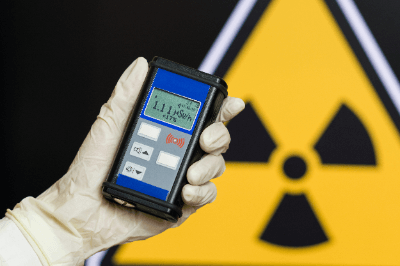What Is a Radiation Meter?

Radiation Meter is a measuring instrument used to determine the ability of a radioactive material that has the ability to emit radiation to emit radiation.
Radioactivity refers to the magnitude of the ability of a radioactive material, such as potassium, cesium, or iodine, to emit radiation.
Uses of Radiation Meter
Radiation Meter is widely used to evaluate the safety of food and other products. For example, they are used to test general foods, foods for infants and young children, dried foods, drinking water, milk, and so on. In particular, they have come to be widely used since the Fukushima nuclear power plant accident at the time of the Great East Japan Earthquake.
Since radioactive materials were spread over a wide area during the nuclear power plant accident, soil contamination was contaminated and the effects on crops and marine products must be checked depending on the location. Therefore, to ensure food safety, testing of food, soil, fertilizer, waste, groundwater, sludge, and environmental samples has been conducted in the vicinity of the nuclear power plant.
Principle of Radiation Meter
The method of measuring radioactivity differs for each type of radiation to be measured. The website operated by the Japan Chemical Analysis Center (JAC) discloses the measurement methods for each type of radioactivity as the “Radioactivity Measurement Series,” which includes 36 measurement methods and sample collection methods. For example, total beta radioactivity measurement method, radioactive strontium analysis method, radioactive cesium analysis method, and other individual measurement methods.
In addition, the Guidelines for Radiation Measurement Methods published by the Ministry of the Environment of Japan state that, except in some cases, measurements of radioactivity concentrations should be made using germanium semiconductor detectors. Germanium semiconductor detectors detect radiation by capturing the free electrons produced by the motion of charged particles in the detector when gamma rays enter the germanium semiconductor.
Germanium semiconductor detectors have high energy resolution and can detect many nuclear species with high accuracy. On the other hand, it cannot measure radiation other than gamma rays, such as the radioactivity of radioactive materials that emit only alpha and beta rays. However, gamma rays have a much stronger penetrating power than alpha and beta rays and have a greater effect on the human body.
Another reason why gamma-ray measurement is chosen is that it is easy to quantify trace amounts of radioactive materials by measuring the gamma-ray spectrum. Radiation Meter other than germanium semiconductor detector is Nal (Tl) scintillation spectrometer. According to the Guidelines for Measurement of Radioactivity Concentration, etc., air dose rates should be measured by air dosimeters that can measure gamma rays, such as tintillation survey meters that have been constructed within a year.
Other Information on Radiation Meter
1. Difference Between Radioactivity and Radiation
The term radiation is similar to radioactivity, but radiation is emitted from radioactive materials. Since radiation is invisible to the eye, we will replace it with visible light, which can be seen. A light bulb is an object that emits light, and a radioactive material corresponds to a light bulb.
Light bulbs also have the ability to emit light, which is expressed in terms of wattage, such as incandescent light bulbs, and lumens, used in LED lighting. In radioactive materials, radioactivity is applicable. The higher the radioactivity, the more radiation is emitted.
On the other hand, in lighting, lux is the illuminance, which varies with distance, even when light fixtures of the same capacity emit light. Similarly, the amount of radiation emitted from a radioactive material that affects the human body is expressed in terms of radiation dose. The unit of radioactivity is becquerel (Bq), and the unit of radiation is sievert (Sv).
2. Radiation Measuring Instruments
While Radiation Meter is a measuring instrument that measures the magnitude of the output of radioactive materials that emit radiation, Radiation Meter is a measuring instrument that measures the environment in which the radiation is emitted and the magnitude of the effect of the radiation on the human body. Radiation measuring instruments include GM-tube, scintillation, and ionization chamber survey meters.
It is important to select the appropriate measuring instrument or method depending on the radioactivity measurement, radiation measurement, and radiation of interest.